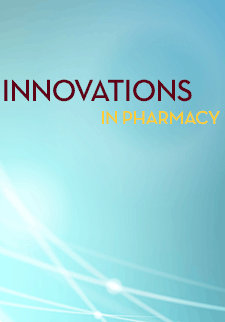Student Pharmacist-Led Basic Life Support Training for High School Students Improves Knowledge and Skill Achievement
Song Oh
Philadelphia College of Pharmacy, Saint Joseph's University
https://orcid.org/0000-0002-0623-3978
Brooklyn T. Cobb
Memorial Hermann Southwest Hospital
https://orcid.org/0000-0001-8609-9264
James M. Hollands
Philadelphia College of Pharmacy, Saint Joseph’s University
https://orcid.org/0009-0003-8685-9202
Haley L. Kavelak
St. Luke's University Health Network
https://orcid.org/0000-0003-1917-6439
Laura H. Waite
Philadelphia College of Pharmacy, Saint Joseph’s University
https://orcid.org/0000-0001-9967-9516
Angela L. Bingham
Philadelphia College of Pharmacy, Saint Joseph’s University
https://orcid.org/0000-0002-1113-2872
DOI: https://doi.org/10.24926/iip.v14i4.5730
Keywords: Basic Life Support, Resuscitation Education, Neer Peer Teaching
Abstract
Introduction: The performance of bystander cardiopulmonary resuscitation (CPR) improves survival among cardiac arrest victims. Near-peer teaching of Basic Life Support (BLS) may be an effective way to deliver resuscitation education. This article aims to assess the effectiveness of a student pharmacist-led American Heart Association (AHA) BLS course on high school students' knowledge and skill achievement. Methods: Student pharmacists were trained as AHA instructors and delivered BLS certification courses to high school students. Participants completed pre- and post-assessments adapted from the course learning objectives. Skills performance was evaluated using the AHA’s standardized forms. Participants completed questions regarding their perceptions of the pharmacist’s role in BLS and confidence in pursuing a career in healthcare. Results: There were 321 participants with the majority in 11th or 12th grade (86.6%) and attending public school (99.1%). After completing the training, the mean percentage of correct assessment responses increased from 41.2% to 89% (p <0.0001). All participants correctly performed BLS skills. Most participants strongly agreed or agreed that the course changed their perspective of the pharmacist’s role during BLS (74.8%) and increased their confidence in their decision to pursue future careers in healthcare (61.7%). Conclusion: Student pharmacist-led BLS training, using near-peer delivery, improves high school students’ knowledge and skill achievement. This strategy promotes high school students’ positive perceptions regarding pharmacists and their role in BLS, as well as their confidence in pursuing careers in healthcare.
Downloads
Author Biographies
Song Oh, Philadelphia College of Pharmacy, Saint Joseph's University
Dr. Song Oh is a Clinical Assistant Professor in the Department of Pharmacy Practice at Philadelphia College of Pharmacy, Saint Joseph's University in Philadelphia, PA.
Brooklyn T. Cobb, Memorial Hermann Southwest Hospital
Dr. Brooklyn T. Cobb is a Clinical Pharmacy Specialist, Ambulatory Care at Memorial Hermann Southwest Hospital in Houston, Texas.
James M. Hollands, Philadelphia College of Pharmacy, Saint Joseph’s University
Dr. James M. Hollands is a Vice Chair and Clinical Associate Professor in the Department of Pharmacy Practice at Philadelphia College of Pharmacy, Saint Joseph's University in Philadelphia, PA.
Haley L. Kavelak, St. Luke's University Health Network
Dr. Haley L. Kavelak is a Critical Care Clinical Pharmacist at St. Luke's University Health Network in Bethlehem, PA.
Laura H. Waite, Philadelphia College of Pharmacy, Saint Joseph’s University
Dr. Laura H. Waite is an Assistant Dean of Student Affairs and Admissions, Director of Student Recruitment and Engagement, and Clinical Associate Professor in the Department of Pharmacy Practice at Philadelphia College of Pharmacy, Saint Joseph's University in Philadelphia, PA.
Angela L. Bingham, Philadelphia College of Pharmacy, Saint Joseph’s University
Dr. Angela L. Bingham is an Acting Chair and Clinical Associate Professor in the Department of Pharmacy Practice at Philadelphia College of Pharmacy, Saint Joseph's University in Philadelphia, PA.



